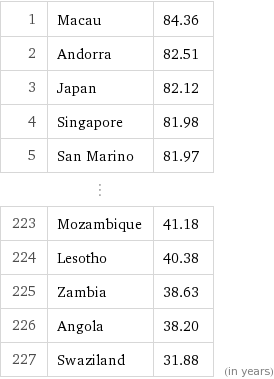I have to say, I am impressed with Wolfram Alpha. I think it’s a game changer. It provides a powerful new way of interacting with the large repositories of data available on the Web. For instance, instead of googling for “number of google employees” (incidentally, it isn’t until the 4th result down that you get the answer), then googling for “number of yahoo employees”, then doing the math to compute the ratio, you would simply input into Wolfram Alpha “google/yahoo employees“. (The answer is 1.487:1, if you’re curious.)
Welcome to the brave new world of computational engines.
What’s a computational engine, you ask? The best definition I can think of is: an online data mining and analysis tool.
What can a computational engine do? A lot. It can segment the population by gender (“u.s. male population, u.s. female population“). It can tell you what that ratio is (“u.s. male population / u.s. female population“). It can graph the growth of the U.S. population over the last several decades (“population u.s.“). And it can calculate population density in the U.S. (“population density u.s.“).
It’s a simple matter to do head-to-head comparisons and generate comparative charts. Just separate the terms with commas. For example, type in “google, yahoo” and you’ll get a bunch of charts and graphs comparing the two companies’ financials, stock performance and price history.
And wow can you drill down into the data easily. For example, start with the query “google.com” and you’ll see all sorts of pertinent facts about the site and the company. To see a report of all the subdomains of google.com, click on the “Subdomains” link. From there you can click on “More subdomains” to get a more exhaustive list:

I just wish I could have typed “subdomains of google.com” or “google.com subdomains” to get to the answer. Neither of those queries works.
Wolfram Alpha can even tell you how long you’ll live. I queried “life expectancy age 38 male u.s.” and it returned 77.54 years. Then I queried my birthdate and learned that was 38.45 years ago. Then “77.54 – 38.45 years” returned not only 39.09 years, but also 14,268 days — which feels a lot longer to me! Finally, “39.09 years from now” gives the time and date of my demise: 5:31:06 pm CDT on Thursday June 25, 2048.” I’m loading that in my iPhone’s calendar with an alarm 10 minutes beforehand, so at least I won’t get caught offguard. 😉
I also tried “(77.54 – 38.34) years from now” but Wolfram Alpha choked on that one. However “now + (77.54-38.34) years” did work.
If you’re curious which countries have the longest life expectancy (or shortest), type in “life expectancy”. Here’s the answer:

Perhaps I can buy myself a bit of extra time by moving to Macau? Exactly how much time is anybody’s guess. Oh wait, Wolfram Alpha can answer this too!
Not only is the output interesting, the presentation of it is really slick, with great-looking charts and graphs. Note that the charts are rendered as images, not as text. If you want to copy and paste the data within the chart, simply click on it and a “Copyable plaintext” popup box will display.
I find the overly critical comparisons with Google unfair. Remember, Wolfram Alpha is a computational engine, not a search engine. Comparing Wolfram Alpha to Google is like comparing a cell phone to a TV remote. Sure a cell phone and TV remote may both be about the same size and they both have buttons, but the functions they perform are vastly different.
And it’s very early days. We need to cut them some slack. Yes it is frustrating to get so many “Wolfram Alpha isn’t sure what to do with your input” messages, but when Google debuted in 1997 it was pretty rough too, right?
One piece of feedback I would offer to the engineers at Wolfram Alpha is to provide segmentation options to users. In other words, suggest the various ways the requested data can be sliced and diced. For example, the following queries all work properly:
- life expectancy male
- life expectancy age 38
- life expectancy u.s.
- life expectancy u.s. age 38 male
- ldl 100 nonsmoker age 38 male u.s.
but these queries do not:
- life expectancy nonsmoker
- life expectancy ldl 150
- life expectancy wisconsin
- life expectancy wisconsin age 38 ldl 150 male nonsmoker
even though Wolfram Alpha is properly interpreting the syntax of the query and its components (“life expectancy”, “male”, “age 38”, “u.s.”, “nonsmoker”, “wisconsin”, and “ldl 100”). I kept running into trouble when I attempted to further refine the life expectancies from U.S. residents to Wisconsin residents, from males to non-smoking males with slightly high cholesterol levels. Teasing out subgroups within a population could be facilitated by an intuitive visual interface for viewing and selecting from the available segmentation properties. Or by better error messages, like: “Life expectancy data is not available segmented by state, only by country. Please try a broader query, like life expectancy u.s.“.

 SIGN UP FOR EXCLUSIVE WEEKLY CONTENT
SIGN UP FOR EXCLUSIVE WEEKLY CONTENT 


I’m looking forward to the Wolfram iPhone app!!
This is a service a company like PEW or Nielsen could really do amazing things with. I was just speaking with someone yesterday about how nice it would be to see the data collected by Neilsen in a searchable/comparable format.
I had no idea Google ha so many subdomains. Interesting. Regards!
Nice post. One of the best I’ve seen regarding WA